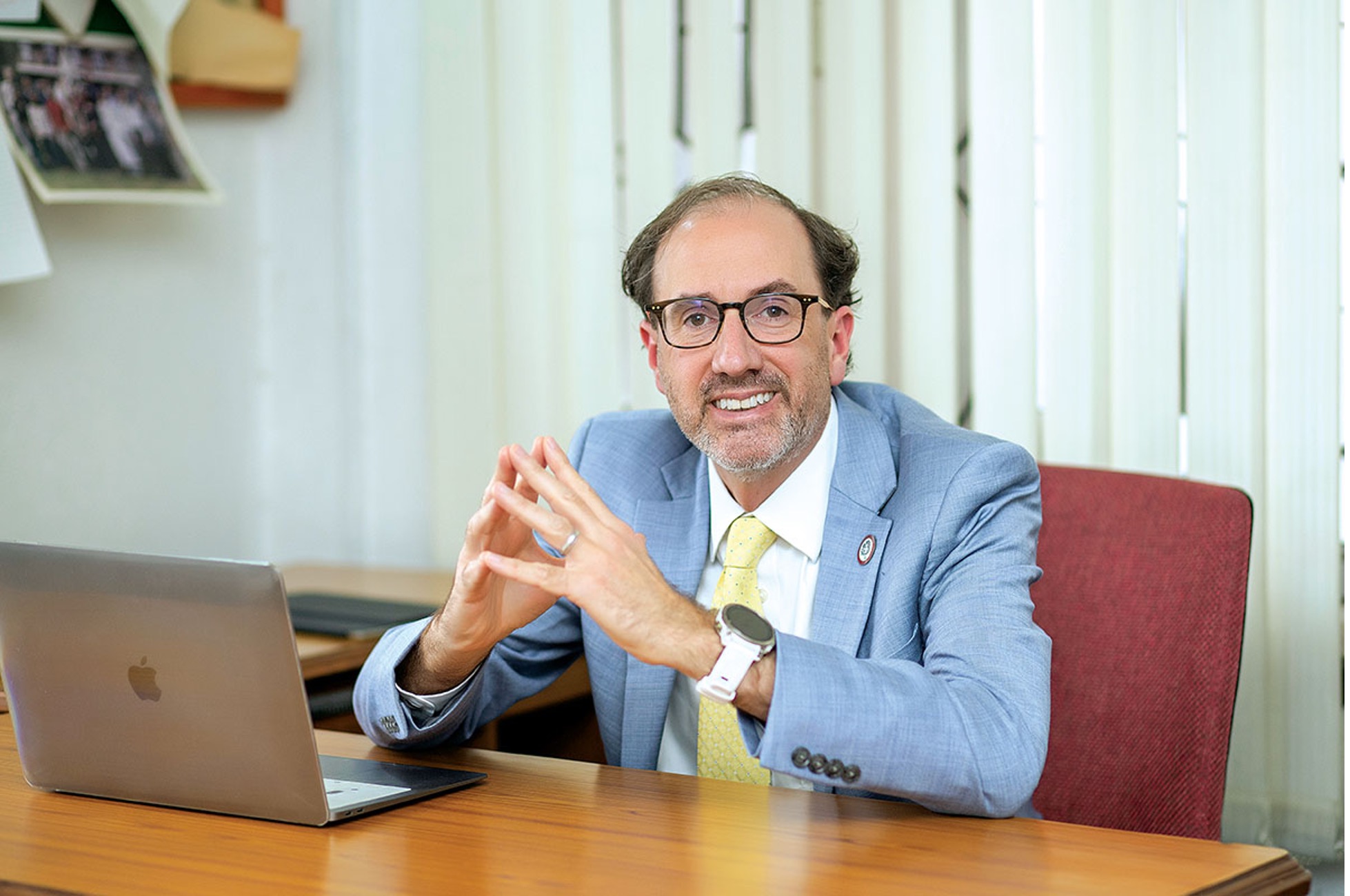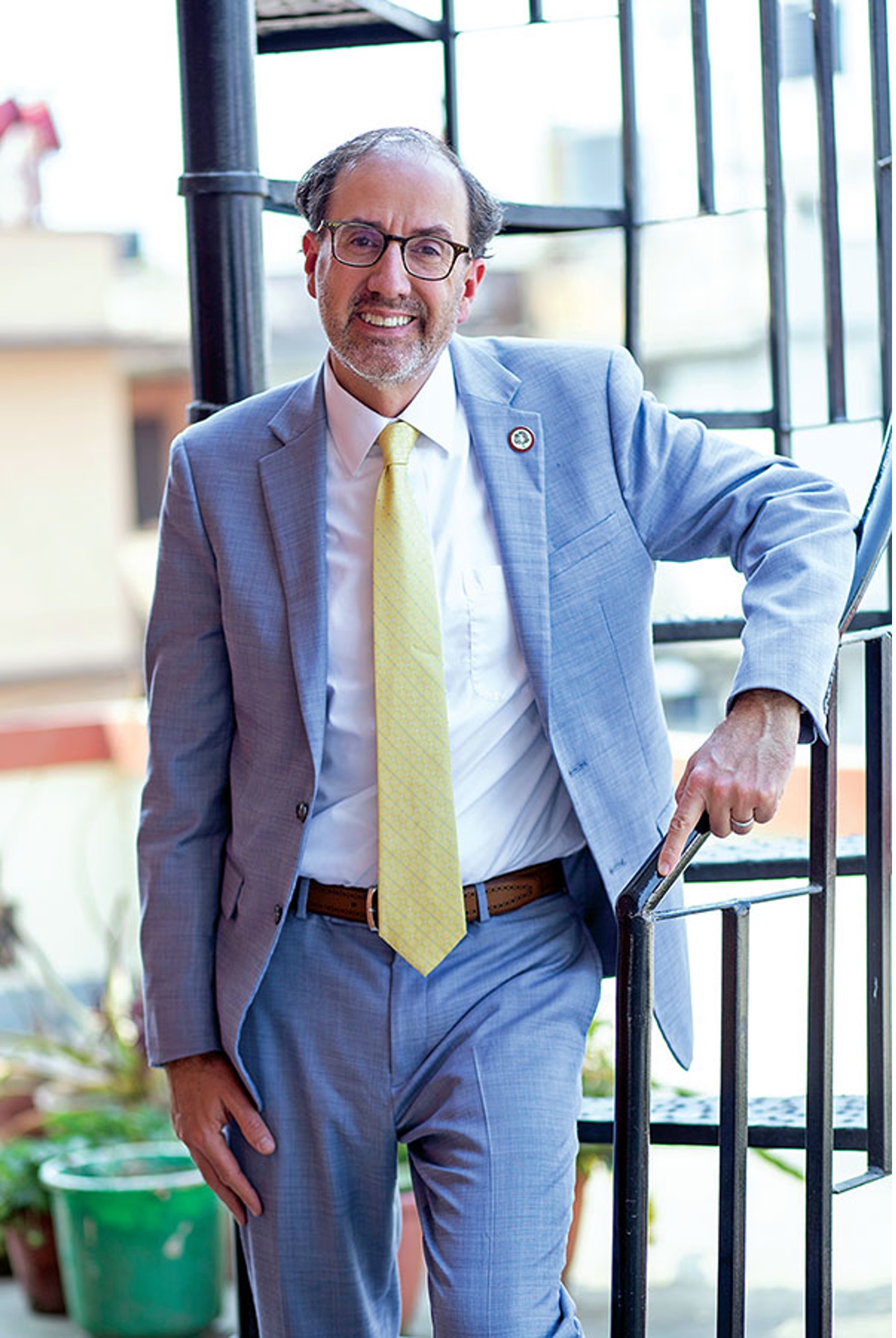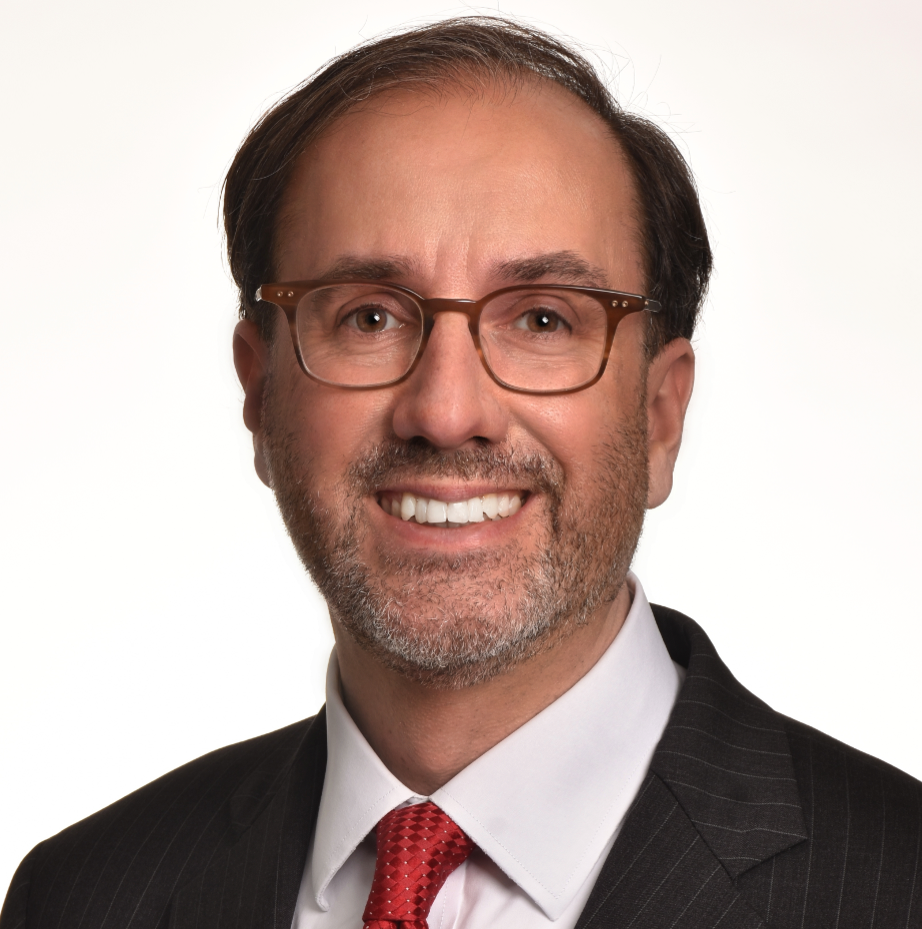Robert Alt Featured in Premier Nepali Business Magazine
May 15, 2025'Free markets unlock growth by aligning individual and societal interests'

Robert Alt, President and CEO, The Buckeye Institute
Robert Alt is the President and Chief Executive Officer of The Buckeye Institute, a prominent free-market think tank based in Columbus, Ohio in the United States. At 51, he brings with him not only the experience of a seasoned legal professional but also the spirit of an adventurer. A passionate mountaineer, Alt is currently on a mission to climb the seven summits – the highest peaks on each continent – combining his love for the outdoors with deep personal reflection. His unique philosophy, which he calls Profound Climbing, is rooted in the idea that climbing mountains mirrors the journey of overcoming challenges in life and public policy through deliberate, strategic steps.
Alt's career has been marked by his commitment to promoting government accountability and championing the power of free markets to improve lives. He believes in the potential of sound economic policies to lift people out of poverty, spark innovation and create lasting prosperity. Despite living in the middle of the United States – far from the towering peaks he loves – his dedication to both climbing and policy reform has taken him across the globe, inspiring conversations that blend personal resilience with practical governance.
During his recent trip to Nepal to attempt the summit of Mount Everest, Alt spent time in Kathmandu where Business 360 caught up with him for a conversation about free market ideas, public policy and the lessons mountaineering can offer to those working to shape a more prosperous and accountable future. Excerpts:
You have long been an advocate for free market policies and government accountability in the United States. What lessons can a developing country like Nepal draw from such an approach?
I think the first and most important step is to help people understand what capitalism and free markets have achieved throughout history. There is an economic historian named Deirdre McCloskey who has done incredible work in this area. She shows how, over time, free markets have dramatically improved per capita income around the world. It is like a hockey stick curve, flat for centuries and then rising steeply with the rise of capitalism.
Free markets and capitalism have done more to lift people out of poverty and into prosperity than any other system in history. So, for countries like Nepal, embracing these ideas – especially when combined with good governance and accountability – can really transform lives. It is not just about economics; it is about giving people the freedom and opportunity to improve their lives and their communities.
But when we talk about global trade, figures like Donald Trump have imposed tariffs that some say go against the idea of free trade. Doesn’t that create barriers? Or is there a strategy behind it?
That is something people debate a lot. If tariffs are put in place just for the sake of being protectionist, then yes, I would be concerned. That kind of policy can hurt consumers and limit economic growth on both sides.
However, if tariffs are used as a negotiating tool – to encourage other countries to lower their own tariffs or remove unfair barriers – then there might be a strategic benefit. Sometimes, a temporary tariff can help bring other countries to the table so that, in the long run, trade becomes more open and fairer. If that is the intention, and it leads to more trade and lower barriers for both sides, then it could actually support freer trade in the long term. But it really depends on how the policy is used.
In Nepal, we are still working to build and strengthen our markets. From your perspective, how can we move closer to a functioning free market economy?
I have seen some really encouraging efforts in Nepal already. One example I find very promising is the recent move to allow companies to pay employees in equity. That is how a lot of startups operate in places like Silicon Valley.
Startups often do not have a lot of cash early on but they can offer employees a stake in the company. That not only attracts talent but gives employees a real incentive to work hard and grow the business. It aligns everyone's interests. If the company succeeds, everyone benefits.
Allowing that kind of flexibility could be a game changer for entrepreneurship in Nepal. It encourages innovation, risk-taking and it helps build a strong ecosystem for small businesses to thrive.

Speaking of startups, there has been a lot of discussion about defining what a startup actually is. How do you define a startup?
Definitions can vary, but to me, a start-up is really about spirit and innovation. In the US, we often point to a little garage in Palo Alto, California as the birthplace of Silicon Valley. It is where two Stanford graduates started what became Hewlett-Packard, one of the world’s biggest tech companies. That story captures what a startup is: someone with an idea, working hard – maybe in a garage, a basement, or a small room – to solve a problem and build something new. They might not have much in terms of resources, but they have determination, creativity and the willingness to take a risk.
So, for Nepal, a start-up could be any small team or individual working on something innovative, trying to create value and improve people’s lives. It is not about size or structure, it is about energy, ideas and the drive to grow.
In Nepal, small and medium enterprises are the backbone of the economy. Is that something you also see in the United States? And what kind of policies can support this sector better?
It is the same in the US. In fact, most jobs in America are created by small businesses, not large corporations. That is where a lot of innovation and job growth happens.
To support SMEs, the biggest thing governments can do is to get out of their way. That means reducing unnecessary regulations, simplifying the process to start and run a business, and letting entrepreneurs focus on their work rather than on paperwork or bureaucracy.
In many countries, including Nepal, there are still large parts of the economy run by the state. In some cases, allowing the private sector to step in could lead to more efficient and customer-friendly services. And when it comes to licensing or permits, sometimes the process is so complex that it discourages people from even trying.
In the US, we have had similar challenges. One of the things we have worked on is making it easier for people to move between states and still be allowed to practice their profession. If you are already trained and licensed, why should you have to start over? So, I think anything that removes these kinds of barriers helps individuals, and in turn, helps the whole economy grow.
Around the world, we are seeing growing criticism of globalisation and free markets. Do you think free market supporters have failed to communicate their message well, or is there something fundamentally wrong with the model?
I think one of the challenges is that the benefits of economics – especially things like globalisation and free trade – are not always immediately visible. There is a classic idea in economics by Frédéric Bastiat called “What is seen and what is unseen.” It explains how the benefits of trade are often hidden, even though both sides eventually benefit.
Let me give a simple example: minimum wage laws. On the surface, raising the minimum wage sounds compassionate – it feels like it will help workers. But the economic reality is more complex. In the US, for instance, small businesses – which employ a large part of the population – may not be able to afford to hire as many people if the minimum wage is too high.
This especially hurts people trying to get their first job – like young people or those from disadvantaged backgrounds – because now businesses want to hire someone more experienced. In effect, we remove that first step of the ladder for many. So, while the intention may be good, the outcome often ends up hurting the very people it aims to help.
The problem is that government solutions often sound nice and simple, like “Let’s just increase wages”, but they do not always work out that way in the real world. Explaining the long-term effects of free markets takes more effort and maybe we have not done a good enough job at that.
Nepal has a huge informal economy with about 80% of businesses unregistered. That means a lot of workers do not get basic rights or protections. How can these businesses be encouraged to become part of the formal economy?
Although I am not an expert on Nepal specifically, I can make an educated guess based on economics. Usually, when you see a large informal economy, it means that registering a business is either too expensive, too complicated, or both. So, many people avoid the process altogether and operate informally – sometimes even illegally – to escape burdensome rules or taxes. This not only limits workers' rights but also makes it harder for the government to support these businesses in the long run. The solution? Simplify the process. Make business registration easy, fast and affordable. Reduce the paperwork, cut down the costs, and remove unnecessary barriers.
Let me give an example from my home state of Ohio. We streamlined the registration process and reduced fees. As a result, more people started formally registering their businesses. The same can happen elsewhere if governments focus on removing obstacles rather than adding more rules.
Tell us about your connection with Nepal and the mountains…
In my day job, I run the Buckeye Institute, a free-market think tank in the US. But mountaineering is my personal passion. I have taken on the challenge of climbing the ‘Seven Summits’, which are the highest mountains on each continent. That is why I am here in Nepal; this is my second visit to Kathmandu. I have come to attempt to summit Mount Everest. It is one of the most beautiful and challenging mountains in the world and being here is truly humbling. The mountains have taught me patience, discipline and the importance of preparation, lessons that also apply to economics and life.
You mentioned that mountaineering can teach us a lot about public policy and free market ideas. Can you walk us through some of those lessons?
There are several key lessons I have drawn from mountaineering that apply directly to those working in public policy or promoting free market principles.
The first lesson is this: you do not reach the summit without putting in the hard work. The summit is not just achieved on the day you climb, it is earned in the months or even years of training, carrying heavy backpacks up steep terrain, building strength and stamina. Likewise, in policy work, you need to do the groundwork – gathering data, building arguments, preparing thoroughly. You cannot expect people to support free market ideas just because we believe in them. We must present solid evidence, especially to show how policies like minimum wage laws might unintentionally hurt the very people they aim to help – like young, poor or marginalised workers.
What is a mountaineering lesson you think applies to the policy world?
Know who you are roped to. When climbing, we use ropes to tie ourselves to teammates for safety, especially to protect against hidden dangers like crevasses. But that rope also carries risk. If someone does not know what they are doing, they could drag you down. It is the same in the world of policy. You need to be mindful about who you are working with – whether it is a politician, a colleague or a partner organisation. If someone acts unethically or carelessly, it can hurt your cause and your credibility. Trust is essential, and just like on a mountain, it can be a matter of survival.
What about ‘summit fever’? What does that mean, and how does it relate to policymaking?
In mountaineering, ‘summit fever’ refers to the obsession with reaching the top at all costs, even if it puts you or your team in danger. People sometimes forget that getting to the summit is only halfway, you still have to come down safely.
In public policy, it is the same. Sometimes we think passing a law is the end goal. But if that law is not implemented properly or if people do not understand it, it does not achieve anything. I have seen this happen. We passed a landmark criminal justice reform in Ohio but many judges and lawyers did not apply it correctly. The law existed but the change we hoped for did not happen. So, we have to remember: our goal is not just passing policy, it is improving lives.
Have you seen this kind of tunnel vision in the free market community?
Yes, especially when it comes to things like school choice. Some people argue over the best policy tool – vouchers, tax credits, savings accounts. But we forget the bigger goal: empowering parents to choose the best education for their children. It is easy to get caught up in the details and lose sight of the purpose. The tools are important but they are not the end.
You talk about setting ‘unreasonable goals’. Can you explain that?
In the business world, we call them BHAG – Big Hairy Audacious Goal. They are bold and sometimes sound impossible but they stretch us. One of the most famous examples was JFK’s challenge to land a man on the moon and bring him back safely. That is what I mean by a real summit, it is not just about reaching the top but also about coming back home.
These kinds of goals move the boundaries of what we think is possible. In business, they gave us the internet, smartphones and Amazon. In our personal lives, they help us run marathons or even win gold medals. They teach us resilience, endurance and courage, even in failure.

